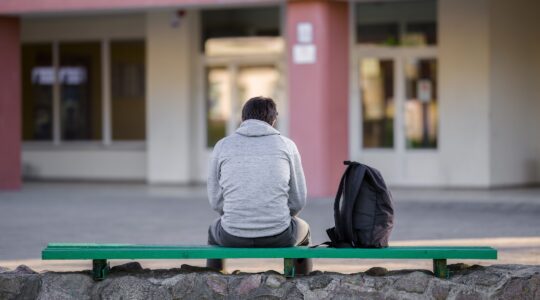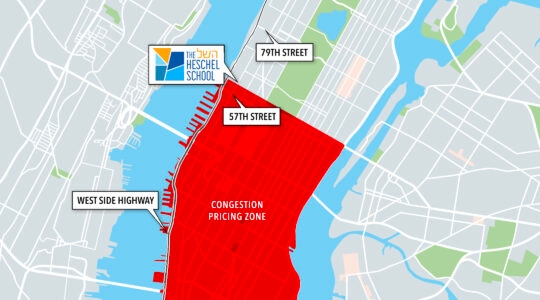Dan Tadmor left a distinguished career in Israeli media — 20 years as an editor and manager at the daily Yedioth Achronot, followed by several years as a television executive — to become the CEO a year ago of Beit Hatfutsot, formerly known as the Museum of the Diaspora and now the Museum of the Jewish People. During a recent visit to New York he sat down at the offices of The Jewish Week to discuss the significance of the name change, reflecting the reinvented institution and what about the position enticed him to leave journalism. This is an edited transcript.
Q: Why did you leave a successful post in Israeli television to head a museum?
A: I got the “Jewish Peoplehood” bug after I met Irina Nevzlin Kogan, president of the museum, and we started talking about what peoplehood means, and the challenge to find programs that can engage people in exploring their Jewish identity.
How do you define Jewish Peoplehood?
It’s still a fuzzy concept but people understand it intuitively. Our definition is one of extended family — not a genetic definition, but an open family. We see it as a very pluralistic and inclusive approach to Jewish identity. If you feel you’re Jewish, you are welcome. We hope to promote that sense of belonging. But it’s not a museum “for” the Jewish people, but “of” the Jewish people.
How did your professional background qualify you to head a museum?
My perception of the job was that it’s about providing content, and I know content, from newspapers to TV. At the museum we are producing content in three modules: the exhibits themselves, the educational content — we produce curriculum for visiting school children, Israeli soldiers, adult visitors, and teachers — and data bases for genealogy, music, films, still photos, focusing on family names and the names of Jewish communities.
Until now visitors have to come to us for access to the data, but it will be available on the Internet by the end of this year.
What are the museum’s primary goals?
We want to get people engaged in programs, like learning history, the importance of Israel, and the Hebrew language. The secular answer to “why be Jewish?” is more complicated [than the religious one]. Our job is to provide programs that will engage people in Jewish identity, in their sense of belonging. We come in where emotions meet the mind, with an emphasis on the practical. We provide opportunities and tools to make one’s own journey. And I should add that Israeli young people need to learn about their basic Jewish identity as well.
What changes are taking place at the museum?
We’re in the midst of a grand renewal program. The museum, which opened in 1978 as the Museum of the Diaspora, has grown very tired technologically, physically and in its narrative. The basic story hasn’t changed but we are connecting Israel and the diaspora now, incorporating their stories. Thanks to the vision and support of the Nevzlin family, which helped keep the museum alive, we are becoming a global center. We have an $80 million capital campaign that will make our museum the world’s largest of its kind, and we have raised about $30 million. We hope to complete the project in 2017. Already we are expanding in many ways. For example, our educational program includes more use of computers to learn one’s history, and senior citizens are sharing their life stories. And the very popular gallery of models of synagogues from around the world will grow and include state of the art technology. The new core exhibit will tell the story of the Jewish people as well as address questions relating to the future, and include narrative, identity and participation.
What is your role as CEO encompass?
It’s really three jobs in one: raising funds, overseeing the renewal process and making sure that things run smoothly in the current museum day to day. It’s a challenge, but looking back it seems that everything I’ve done in my career until now was leading up this.
The New York Jewish Week brings you the stories behind the headlines, keeping you connected to Jewish life in New York. Help sustain the reporting you trust by donating today.




